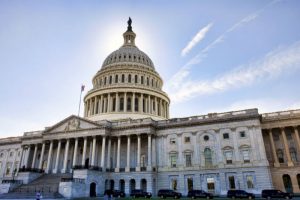
U.S. Sens. Mark Warner (D-VA) and Marco Rubio (R-FL) today expressed deep concern that the Trump administration may concede on important national security matters related to the development of fifth-generation wireless telecommunications technology (5G) in order to achieve a favorable outcome on trade negotiations.
In a letter to the U.S. Department of State and the Office of the U.S. Trade Representative, the Senators underscored the threats posed by Chinese telecommunications equipment to network security, data privacy, and economic security across the globe, and emphasized the need to keep trade negotiations separate from any changes in policy concerning national security threats posed by Huawei.
“Allowing the use of Huawei equipment in U.S. telecommunications infrastructure is harmful to our national security,” the Senators wrote. “In no way should Huawei be used as a bargaining chip in trade negotiations. Instead, the U.S. should redouble our efforts to present our allies with compelling data on why the long-term network security and maintenance costs on Chinese telecommunications equipment offset any short-term cost savings.”
Sens. Warner and Rubio reiterated their support for existing U.S. efforts to convey the long-term security risks posed by Chinese telecommunications firms to allies and partners abroad. However, the Senators expressed concern that this message is being undermined by President Trump, whose Administration reversed a seven-year ban on ZTE last year in defiance of a Commerce Department recommendation, and who in late March indicated that Huawei could be included in a future trade deal. In the letter, the Senators also emphasized that any modifications of Huawei’s Temporary General License must be pursued in a risk-based way, separate from trade negotiations, and without undermining national security.
As a former telecommunications executive who introduced bipartisan legislation on 5G, Sen. Warner continues to be a leading voice on the national security risks posed by Chinese-controlled telecom companies. In December, Sens. Warner and Rubio urged Canadian Prime Minister Justin Trudeau to reconsider Huawei’s inclusion in Canada’s fifth-generation network.
In January, Sens. Warner and Rubio teamed up to introduce legislation to combat tech-specific, national security threats posed by foreign actors like China, and establish a whole-of-government strategy to protect the U.S. from technology theft. Additionally, Sen. Warner led legislation with Sen. Wicker to provide $700 million for rural telecommunications providers in order to offset the costs of removing equipment from vendors that pose a security threat, such as Huawei.










